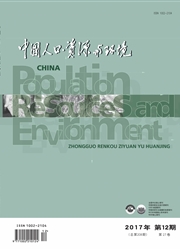

 中文摘要:
中文摘要:
在中国和美国之间的一致和争论是影响那个全球气候协商正在前往的方向的关键因素。由在 GDP 生长上考虑温度增长和它的影响的无常,和积极,否定并且用途,包括中国的一个战略模拟模型和美国上的气候变化投资的溢出效果被开发。基于用途和游戏理论,敏感分析被进行。结果证明第一行动的劣势在比赛存在,并且在非合作的情形下面的每项国家气候变化投资的规模太小,不能保证 2
 英文摘要:
英文摘要:
Consensus and disagreements between China and the U.S. are the key factors influencing the direction that global climate negotiation is heading for. By taking into account the uncertainties of temperature increment and its impact on GDP growth, together with the positive, negative and spillover effects of climate change investment on utility, a strategic simulation model including China and the U.S. is developed. Based on utility and game theory, a sensitivity analysis is conducted. The results show that the first-mover disadvantage exists in the game, and the scale of each country's climate change investment under non-cooperative win-win basis for global cooperation, the technology transfer and funding to China scenario is too small to ensure the 2℃ simulation results also indicate that it target. To guarantee the stability and makes sense to assist and compensate
 同期刊论文项目
同期刊论文项目
 同项目期刊论文
同项目期刊论文
 期刊信息
期刊信息
